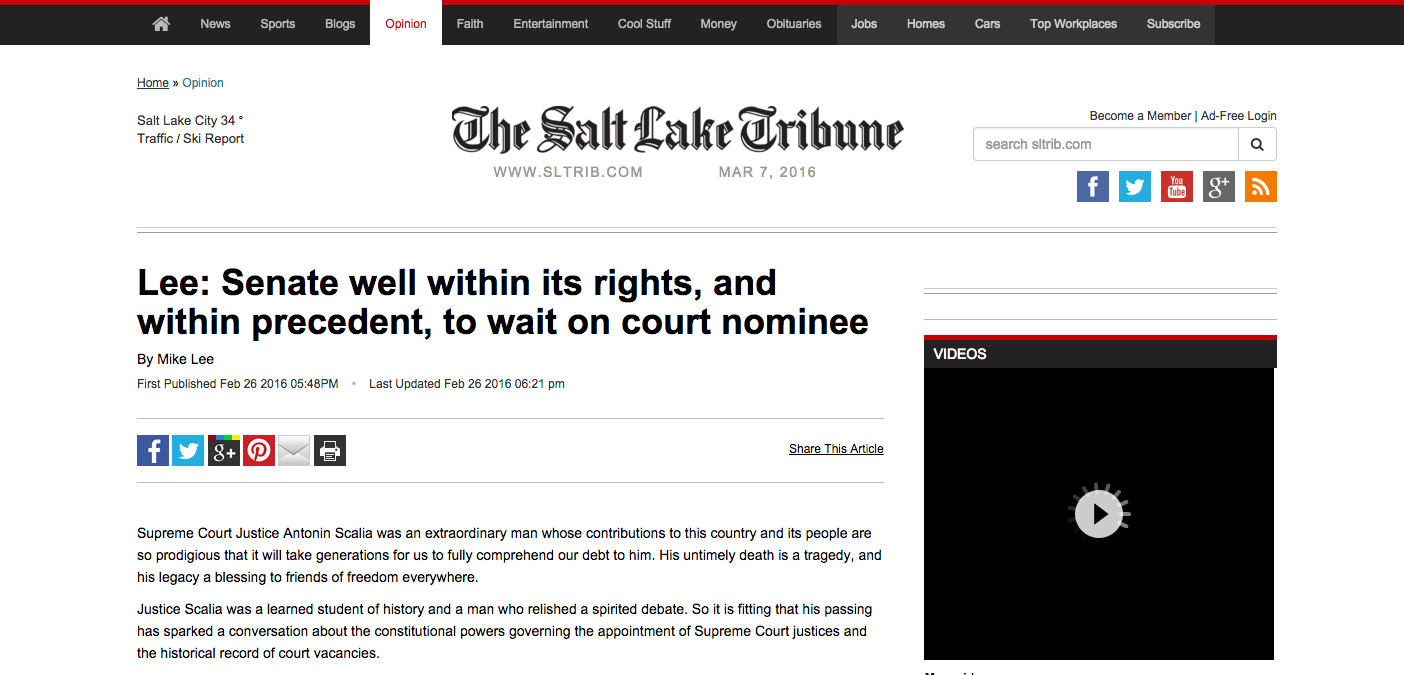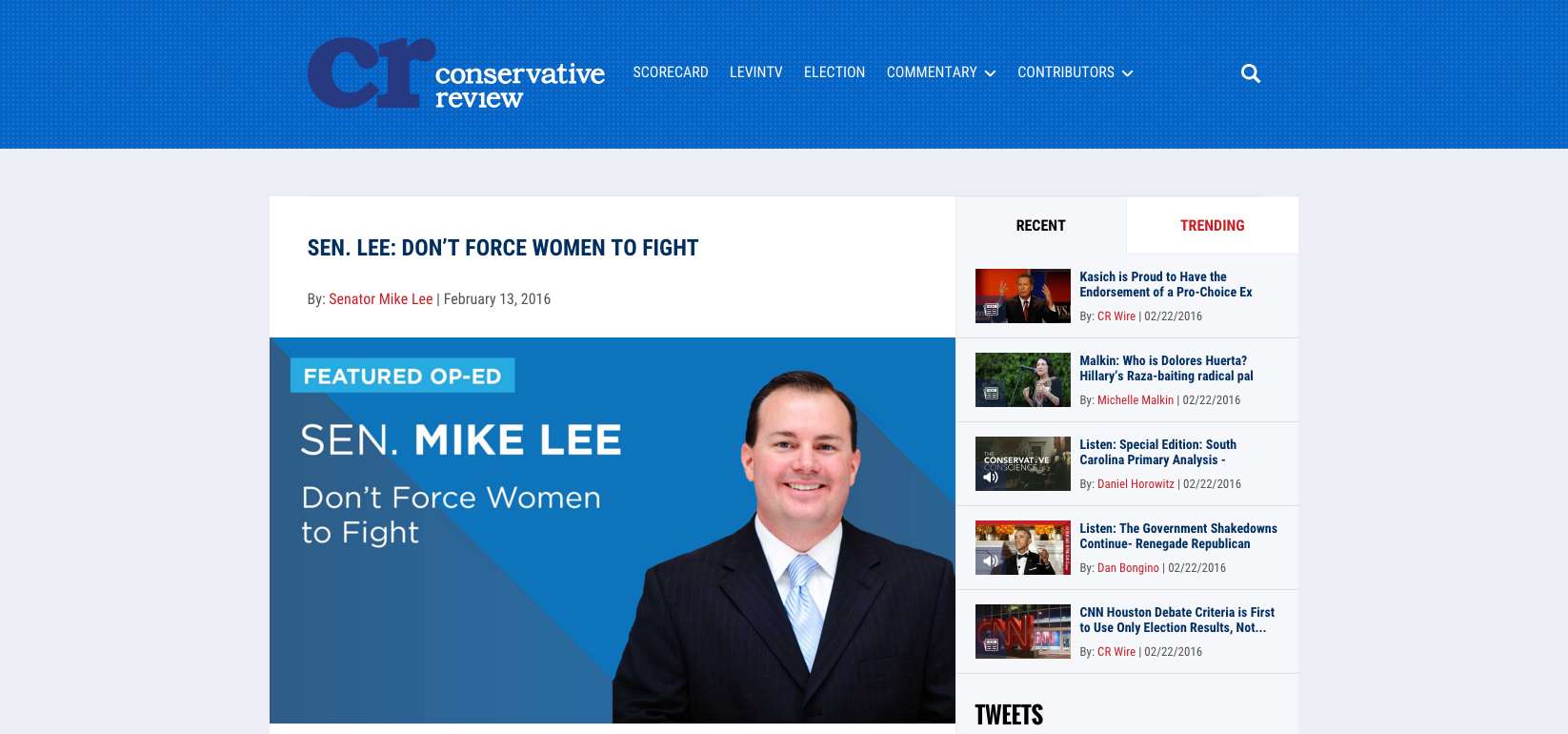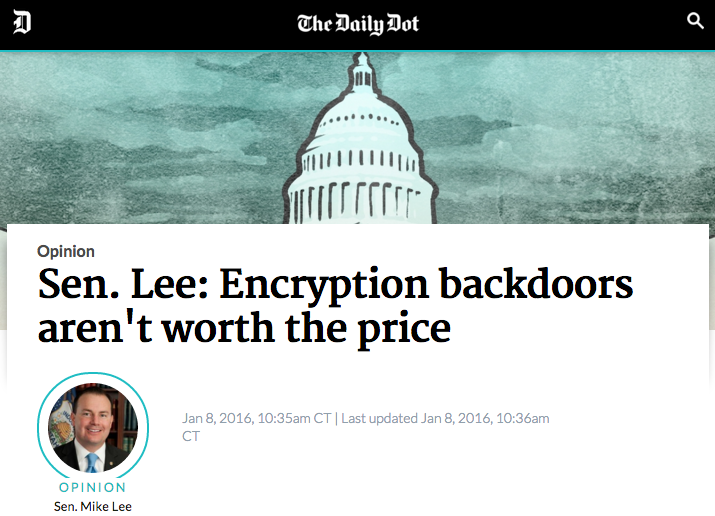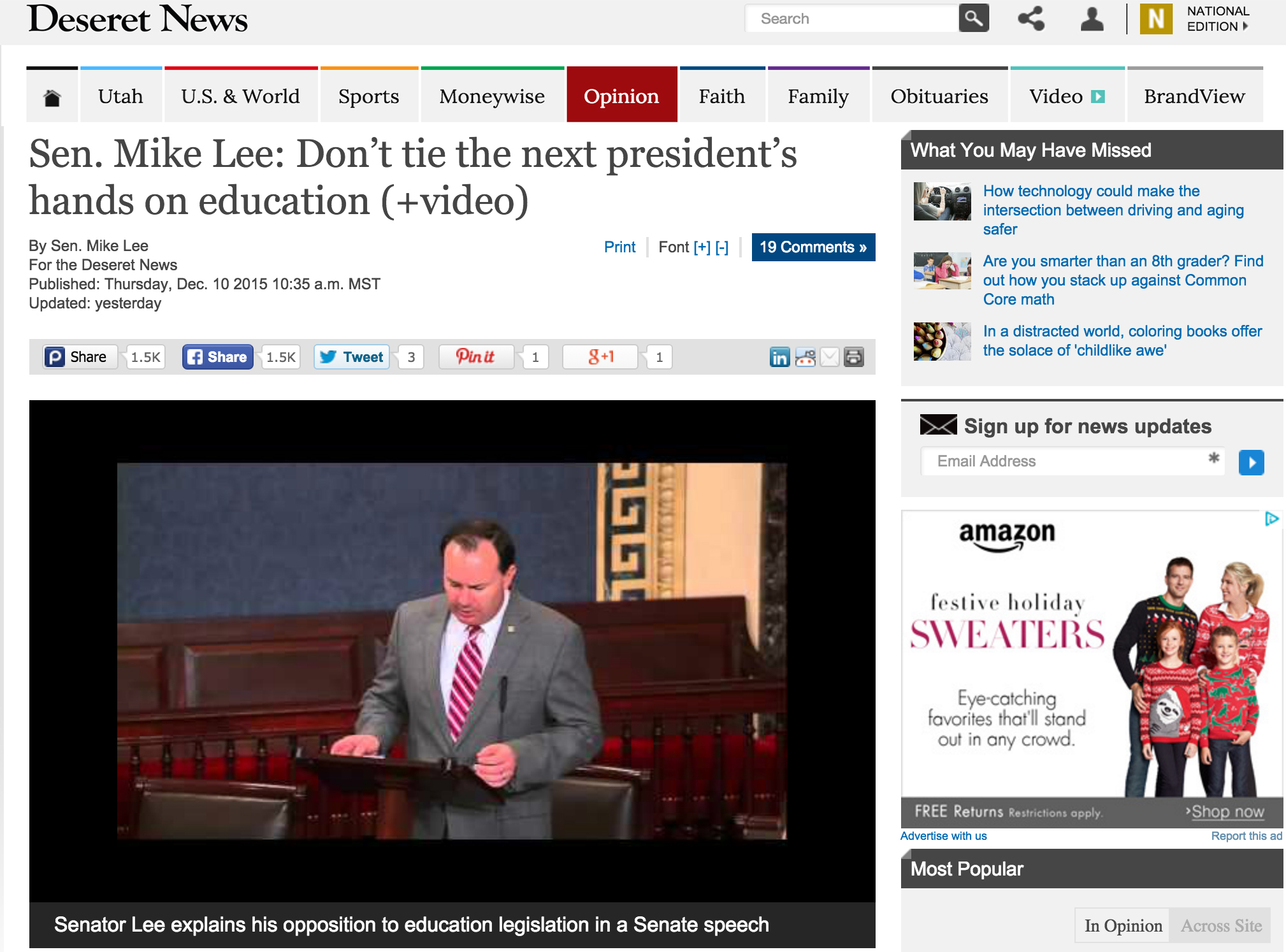Lee: Senate well within its rights, and within precedent, to wait on court nominee
Mar 7, 2016

Bringing freedom back to the Internet
Feb 25, 2016
Sen. Lee: Don’t Force Women to Fight
Feb 22, 2016

Rise Of The Licensing Cartel
Feb 1, 2016
Clock ticking on email privacy reform
Jan 28, 2016
January 28 marks Data Privacy Day—an annual day to raise awareness about personal and data privacy in an era when we store the majority of our business and personal lives online. It is also an important opportunity to remind Congress that Americans’ digital privacy rights remain exposed under an outdated law called the Electronic Communications Privacy Act (ECPA), which allows the government to access our private emails to friends, photos shared with family members and a host of other personal communications conducted online without a warrant.
A year ago on this date, Republicans and Democrats came together in both the Senate and House in an unprecedented show of support to introduce legislation (S. 356, the Electronic Communications Privacy Amendments Act and H.R. 699, the Email Privacy Act) to fix this gaping hole in our privacy rights. Nearly everyone across the political spectrum agrees on a simple premise: that there must be limits on government access to Americans’ emails. These bills would accomplish this by requiring government officials to go before a judge, which is the same process they go through to gain access to enter our homes or open a letter sent through the mail.
Despite a massive show of support that only continues to grow, there has been limited activity in the House and Senate. The Senate held a hearing in September followed by a House Judiciary hearing in December. Yet both pieces of legislation are still stalled in committee and not even set for a markup, let alone a floor vote.
Why the hold up? Unfortunately, some congressional leaders are listening to the concerns of civil agencies -- namely the Securities and Exchange Commission (SEC). These government agencies are reluctant to give up their backdoor access to online communications without a warrant and have successfully blocked ECPA reform thus far. Yet the original ECPA legislation was passed in 1986 -- when the Internet was first growing and widespread use of the cloud wouldn’t occur for another two decades. Ironically, ECPA was intended to protect Americans’ electronic privacy and restrict the government from warrantless access to our online activities. However, ECPA permitted law enforcement and other civil agencies to access online communications after 180 days because, at the time, policymakers and experts couldn’t fathom the idea of storing emails or other data online for an extended period of time. Fast forward nearly 30 decades and that’s exactly what happens today with services like Gmail and Facebook.
2016 is the year to bring ECPA reform across the finish line. Congressional and public support for reform is overwhelming: the Email Privacy Act is now the most co-sponsored bill in the House with a quarter of the Senate co-sponsoring corresponding legislation. Dozens and dozens of businesses, civil liberty organizations, technology companies and experts, including tech mogul Mark Cuban, have praised reform, and more than 110,000 people across the country signed onto a White House petition.
Not only is 2016 the year to capitalize on this surge in support, but it needs to be done soon since there is a limited time left on the congressional calendar for its passage. In a pivotal election year, there are a limited number of days in session to move legislation through both houses before members of Congress transition to full-time campaign mode this summer.
The Senate, House and general public have fully proved the necessity and backing for this crucial safeguard to Americans’ online privacy. It is time to stop heeding the exaggerated concerns of the SEC and move forward with ECPA reform legislation. In an age when bipartisan cooperation and congressional buy-in are low, it should be a no-brainer to bring this legislation to the floor. ECPA reform has met and surpassed all requisite hurdles of support and deserves a floor vote as soon as possible.
Americans deserve to have their Fourth Amendment protections apply online, as they do in the offline world. We call on members of Congress to stand up to the small number of government agencies, like the SEC, which are pulling out all the stops to halt ECPA reform in its tracks to protect their own interests. Congress should listen to the American people -- not the government -- when it comes to strengthening privacy protections online.
Encryption backdoors aren't worth the price
Jan 8, 2016

Don't Tie the Next President's Hands on Education
Dec 15, 2015

A Second Start for Head Start
Nov 30, 2015
Pay Up, and Up, and Up: Developing Nations Set to Make Demands at Climate-Change Talks in Paris
Nov 20, 2015

Let’s Be Honest About the Debt Limit
Oct 22, 2015
